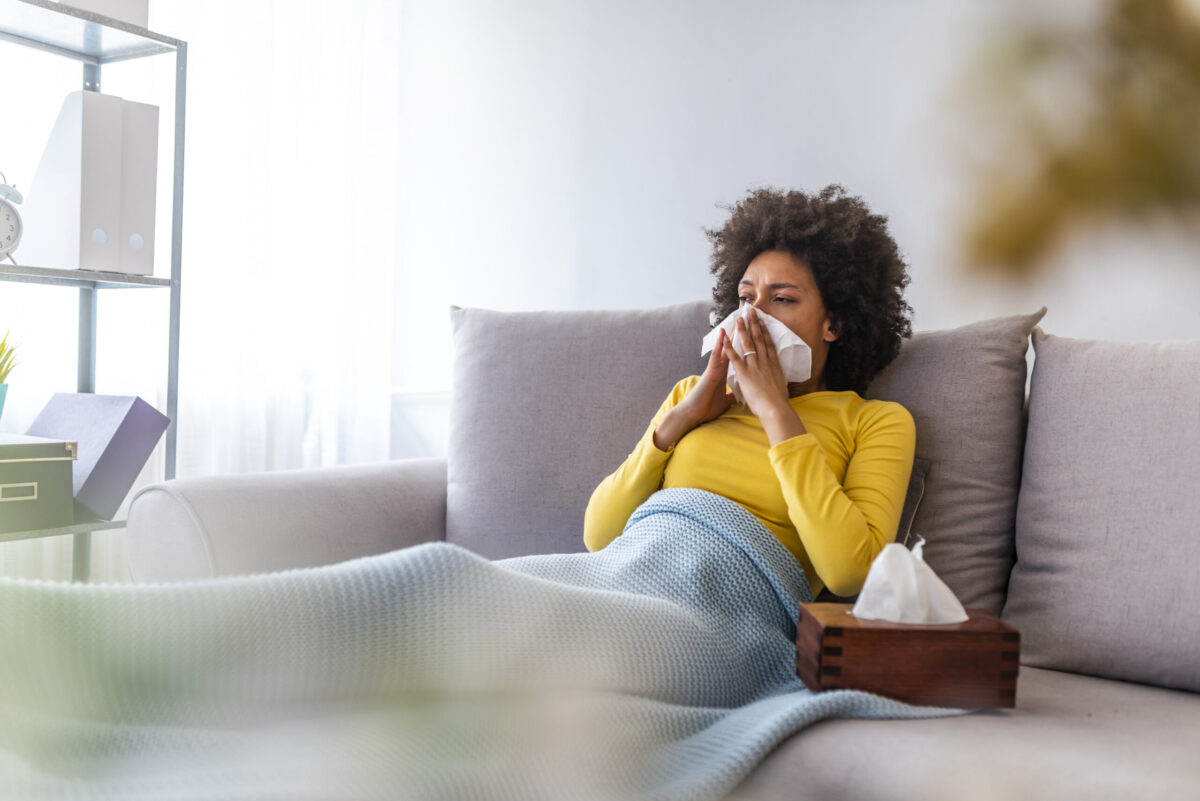Colder weather increases our chance of catching a cold, getting the flu and developing respiratory illnesses.
“The winter months bring an increased risk of infections,” says Dr. Ian Bushell, a family medicine physician and medical director with BlueCross BlueShield of Tennessee. “One reason for this is that we’re inside more so we’re in close contact with more people, which can facilitate the spread of germs. Another is that viruses linger longer in the air and travel further when there is low humidity – like in cold temperatures.”
How cold weather impacts your body
Dr. Bushell: Cold air tends to dry out the mouth and nasal passages, reducing the amount of mucus in your body. Mucus works as a protective barrier for your body. A recent study showed that colder temperatures likely lower your nose’s ability to defend itself against respiratory viruses. Cold temperatures slow down the function of the immune cells and make it harder for them to fight off the invaders that can cause infections.
How to stay safe
Dr. Bushell: Staying healthy in the winter involves many of the same messages that we’ve all been hearing a lot lately. Let’s recap the best practices for protecting our health and staying as well as possible when it’s cold outside:
1. Wash your hands frequently.
Washing your hands thoroughly and completely will go a long way toward eradicating the germs that might otherwise make their way from your hands to your face – and your mouth, nose and eyes. Lather up and scrub all surfaces of your hands with soap for 20 seconds, then rinse under clean, running water. Don’t forget the spaces between your fingers and under your fingernails!
2. Wear a mask
You may be tired of wearing a mask, three years into the pandemic. But donning a face covering when you’re going to be around a sick person or a crowd of strangers (especially if they’re coughing and sneezing) can help you avoid breathing in any airborne particles that might cause you to get sick.
3. Avoid sick people
If you can, avoid being around people who are sick. And if you get sick yourself, stay at home to avoid spreading germs to others. If you have to be around others while you’re sick, consider wearing a mask.
4. Get adequate sleep
If you need an excuse to sleep more, here it is: research shows that the less sleep you get, the more vulnerable you are to the common cold. Specifically, people sleeping less than five hours each night were at greater risk for developing cold symptoms than people sleeping more than seven hours.
5. Stay current on your vaccinations
Did you get your seasonal flu vaccine? What about your COVID-19 booster? Getting vaccinated can help you avoid getting sick, reduce your chances of getting seriously ill and protect those around you.
6. Exercise
Exercise won’t magically protect you against a pesky virus. But exercise can help you strengthen your cardiovascular system and build strong muscles and bone – and just stay healthier in general. You don’t have to go to the gym if you don’t want to – you can always exercise at home.
7. Eat a healthy diet.
Eating a healthy diet that emphasizes fruits and vegetables, whole grains, and lean sources of protein will help you stay healthier overall. It can also help you manage certain chronic health conditions that might also make you more vulnerable to infection. If you’re worried about your nutritional intake, you might consider adding a multivitamin to your daily routine.
8. Stop smoking.
It’s hard to quit smoking, but it’s truly worth making the effort. Smoking harms your immune system and makes it harder for you to fight off infections. In fact, smokers typically have worse overall health than non-smokers, according to the Centers for Disease Control and Prevention (CDC). So if you’re still trying to kick the habit, don’t give up.Take extra precautions if you’re at high risk
Dr. Bushell: Some people are at particularly high risk of severe illness or even death if they contract certain infections. They need to be especially vigilant during cold-and-flu season in any year, but especially when we’ve been experiencing high rates of multiple viruses. This includes people who are:
- Undergoing treatment for cancer
- Experiencing lung conditions such as asthma, emphysema and chronic obstructive pulmonary disorder (COPD)
- Recipients of an organ transplant
- Taking certain steroids or other specialty medications
- Have any other type of illness that compromises their immune system.
“Your individual situation may require more or different protections from getting sick this winter,” Dr. Bushell says. “Talk with your healthcare provider to get some extra guidance on how to protect yourself in the face of winter threats.”
More from Dr. Bushell on WellTuned.
Get more information about specific health terms, topics and conditions to better manage your health on bcbst.com. BlueCross BlueShield of Tennessee members can access wellness-related discounts on fitness products, gym memberships, healthy eating and more through Blue365®. BCBST members can also find tools and resources to help improve health and well-being by logging into BlueAccess and going to the Managing Your Health tab.


